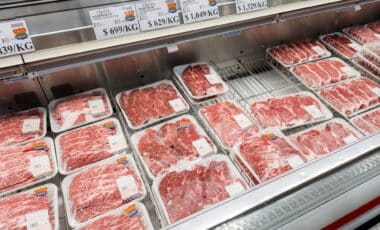A recall of organic Kirkland Signature eggs sold at Costco has been escalated by the U.S. Food and Drug Administration (FDA) to a Class I level, the most serious classification for product recalls. The move signals that consumption of the affected product carries a “reasonable probability” of causing serious health issues or even death.
The voluntary recall, issued by Handsome Brook Farm, concerns cartons of 24-count organic pasture-raised Grade A large eggs distributed to 25 Costco locations across the southeastern United States. The FDA’s reclassification follows the discovery that eggs from a facility contaminated with salmonella bacteria had entered the retail supply chain.
Recalled Eggs Distributed in Five States Under Specific Codes
According to the FDA and the Food Safety and Inspection Service of the U.S. Department of Agriculture, the eggs under recall were sold in 24-count plastic cartons bearing the UPC code 9661910680, Julian code 327, and a use-by date of 5 January 2025. The packaging identifies the product as Kirkland Signature, organic pasture-raised, and Grade A large eggs.
Roughly 10,800 cartons of the affected eggs were distributed to Costco stores in Alabama, Georgia, North Carolina, South Carolina and Tennessee. The recall was first issued in late November 2024, but was upgraded to a Class I recall in December following further risk assessment.
Handsome Brook Farm stated the problem arose when “eggs not intended for retail distribution were instead packaged and distributed in retail packaging.” The company has since implemented “additional supply chain controls and retraining” to mitigate future incidents.
Consumers in possession of the affected eggs are advised not to consume them. The FDA instructs individuals to either return the product to a Costco store for a full refund or to safely dispose of it.
Salmonella Contamination Poses Risk to Vulnerable Populations
Salmonella is a bacterial pathogen known to cause severe foodborne illness, particularly in individuals with compromised immune systems.
Symptoms of infection typically include fever, diarrhea, vomiting, nausea and abdominal cramps, which usually begin within 6 to 72 hours of consumption. While most healthy individuals recover without medical intervention, infants, elderly people, pregnant individuals and those with weakened immune systems are at heightened risk of complications.
This incident follows another high-profile egg recall in September and October 2024, involving a different poultry producer and again linked to salmonella contamination. It also comes amid a wave of recent product recalls in the United States, affecting items such as carrots, cucumbers and ground beef.









